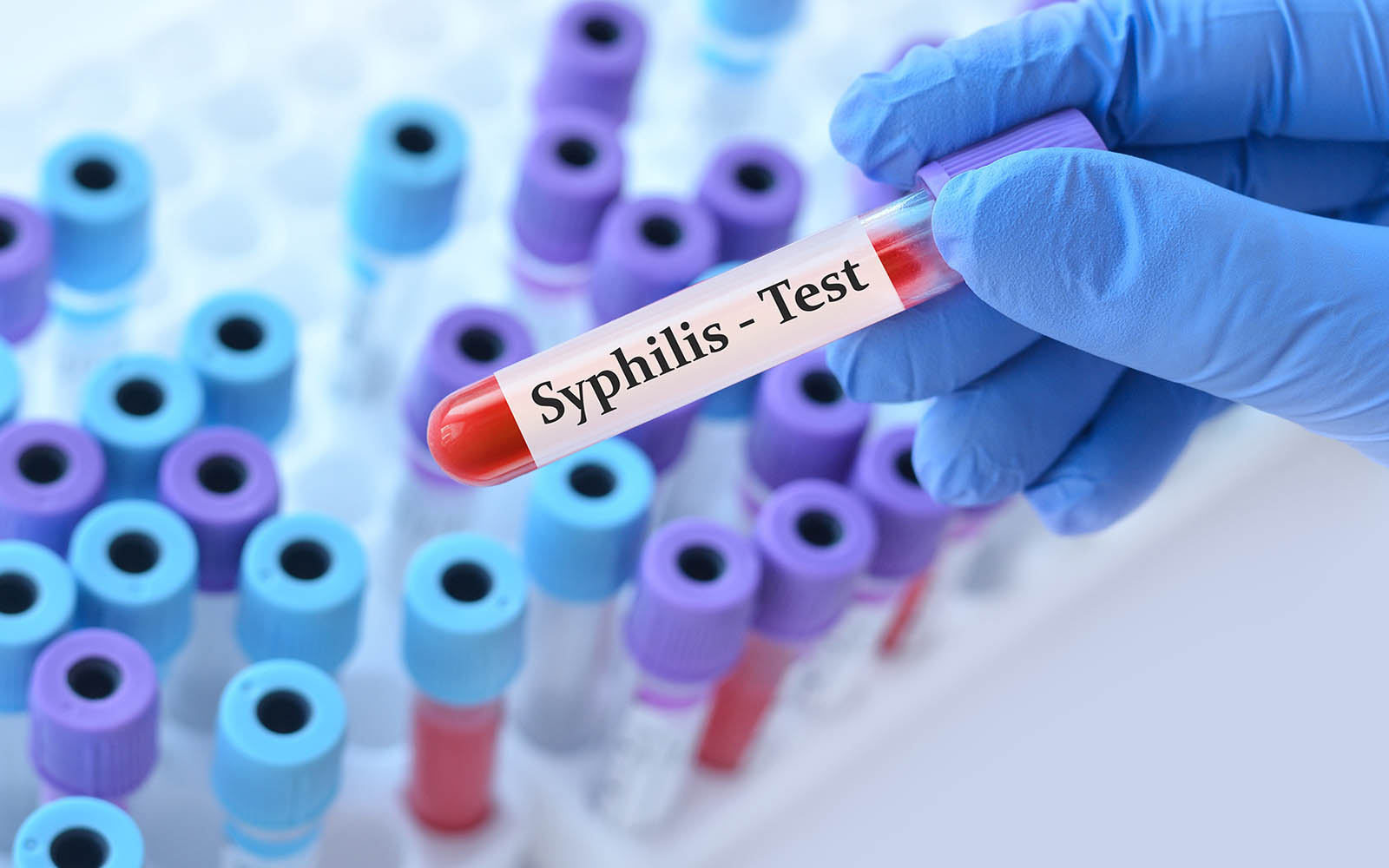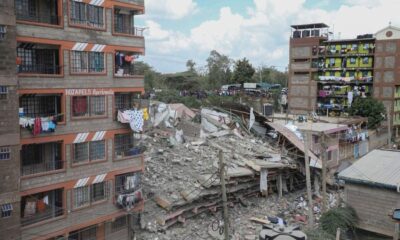Lifestyle
Alarm Over Spike in Syphilis Infections With Women Mostly Hit
Most infected women are identified during routine antenatal clinic visits, where screening for HIV, syphilis, and hepatitis B occurs as part of comprehensive maternal care.

Kenya faces a silent epidemic as syphilis cases surge, with pregnant women bearing the heaviest burden while treatment access remains critically low
Kenya is grappling with an alarming surge in syphilis infections, with women disproportionately affected and a troubling gap between diagnosis and treatment that threatens both maternal and infant health.
According to a new report by the National AIDS and STIs Control Programme (NASCOP) and UNAids, approximately 1.8 percent of Kenya’s population tests positive for syphilis—a figure that should trigger immediate national concern.
Yet the most disturbing revelation lies not in the numbers alone, but in the stark treatment gap that follows diagnosis.
The data reveals a concerning pattern: in 2024, 16 percent of those infected with syphilis were women, yet only nine percent of these women received treatment.
This seven-percentage-point gap represents thousands of untreated cases, with potentially devastating consequences for both mothers and their unborn children.
Most infected women are identified during routine antenatal clinic visits, where screening for HIV, syphilis, and hepatitis B occurs as part of comprehensive maternal care.
With 1,766,099 pregnancies registered in 2024 and 1,468,615 women enrolled for antenatal care, the screening net is wide—but the treatment follow-through remains dangerously inadequate.
Kenya’s struggle mirrors a global crisis.
Worldwide, at least eight million people contracted syphilis in 2022, including 700,000 infants who acquired the infection from their mothers—a entirely preventable tragedy that underscores the urgency of addressing this epidemic.
The World Health Organization warns that untreated syphilis in pregnant women can lead to congenital syphilis, a condition that can cause severe health complications, developmental delays, and even death in newborns.
Every untreated case represents a missed opportunity to prevent lifelong suffering.
NASCOP official Frankline Sangok identified a fundamental problem undermining Kenya’s response: inadequate testing supplies.
“We have a problem with screening for syphilis because of a lack of kits for testing,” Sangok revealed during the report’s release.
This shortage creates a devastating cycle where even motivated healthcare providers cannot diagnose cases, let alone treat them.
The counties leading in syphilis testing—including Laikipia, Nyeri, Nakuru, Makueni, and Uasin Gishu—likely represent areas with better resource allocation rather than necessarily higher infection rates.
This geographic disparity suggests that many cases in under-resourced regions remain undetected and untreated.
Syphilis’s clinical presentation makes it particularly insidious.
The disease initially manifests as a painless sore at the infection site, easily missed or ignored.
Secondary syphilis may include a non-itchy rash on palms and soles, along with fever, swollen lymph nodes, and flu-like symptoms that can be mistaken for other conditions.
This subtle progression allows the infection to spread silently through communities while victims remain unaware of their status.
Without widespread, systematic screening, the true scope of Kenya’s syphilis epidemic likely remains hidden beneath these reported figures.
The report also highlights another concerning trend: three percent of Kenyans have hepatitis B, with Baringo County leading at 12 percent prevalence, followed by Migori and Turkana counties.
NASCOP’s Nazila Ganatra points to stigma as a major barrier to hepatitis elimination, a challenge that likely affects syphilis treatment uptake as well.
With 1.9 million Kenyans infected with hepatitis B and C viruses, the country faces multiple overlapping epidemics of sexually transmitted and blood-borne infections that demand coordinated, comprehensive responses.
NASCOP and UNAids recommend addressing vulnerabilities and inequalities that sustain new infections, tackling health system barriers to quality services, ensuring supply chain sustainability, and building community intelligence for diagnosis and treatment.
The ministry’s strategy of onboarding private hospitals through public-private partnerships offers hope, potentially expanding both resource availability and data collection capabilities.
As LVCT Health’s Patrick Oyaro emphasized, “Data is key. There is no way you will plan appropriately without data.”
Kenya’s syphilis crisis demands immediate, sustained intervention.
The seven-percentage-point gap between female diagnosis and treatment rates represents not just statistics, but thousands of women and their unborn children facing preventable health complications.
With donor support dwindling, Kenya must prioritize domestic resource allocation for sexual health programs while building robust supply chains for testing kits and treatment medications.
The cost of inaction—measured in infant deaths, maternal complications, and long-term health consequences—far exceeds the investment required for comprehensive response.
The question facing Kenya’s health leadership is not whether they can afford to act, but whether they can afford not to.
Every day of delay means more infections, more untreated cases, and more preventable tragedies in communities across the country.
This story is based on preliminary findings from NASCOP and UNAids research released in July 2025.
Kenya Insights allows guest blogging, if you want to be published on Kenya’s most authoritative and accurate blog, have an expose, news TIPS, story angles, human interest stories, drop us an email on [email protected] or via Telegram
-

 Investigations2 weeks ago
Investigations2 weeks agoInside Nairobi Firm Used To Launder Millions From Minnesota Sh39 Billion Fraud
-

 News2 weeks ago
News2 weeks agoUnfit for Office: The Damning Case Against NCA Boss Maurice Akech as Bodies Pile Up
-

 News2 weeks ago
News2 weeks agoDeath Traps: Nairobi Sitting on a Time Bomb as 85 Per Cent of Buildings Risk Collapse
-

 News2 weeks ago
News2 weeks agoRaila Bodyguard Maurice Ogeta Appointed As Mombasa Security County Adviser
-

 Business3 days ago
Business3 days agobetPawa Empire Crumbles: Mr Eazi’s Betting Gambit Unravels Amid Partner’s Shadowy Deals
-

 Investigations7 days ago
Investigations7 days agoKERRA Homa Bay Region Manager Calvince Thomas Accused of Swindling Businessman Ksh 2 Million in Phantom Tender Deal
-

 Business3 days ago
Business3 days agoKRA Boss Humphrey Watanga In Big Trouble In Sh5.5 Billion Rice Import Scandal
-

 Business7 days ago
Business7 days agoTreasury’s Sh40 Billion Safaricom Gamble Could Cost Kenya Trillions, Auditor Warns


















